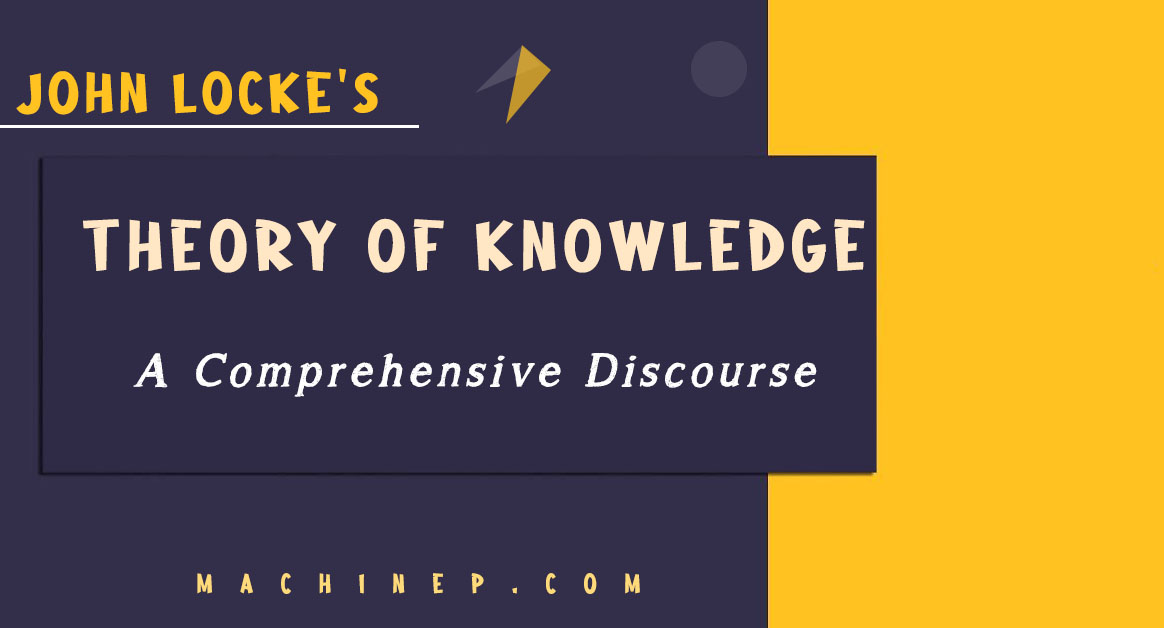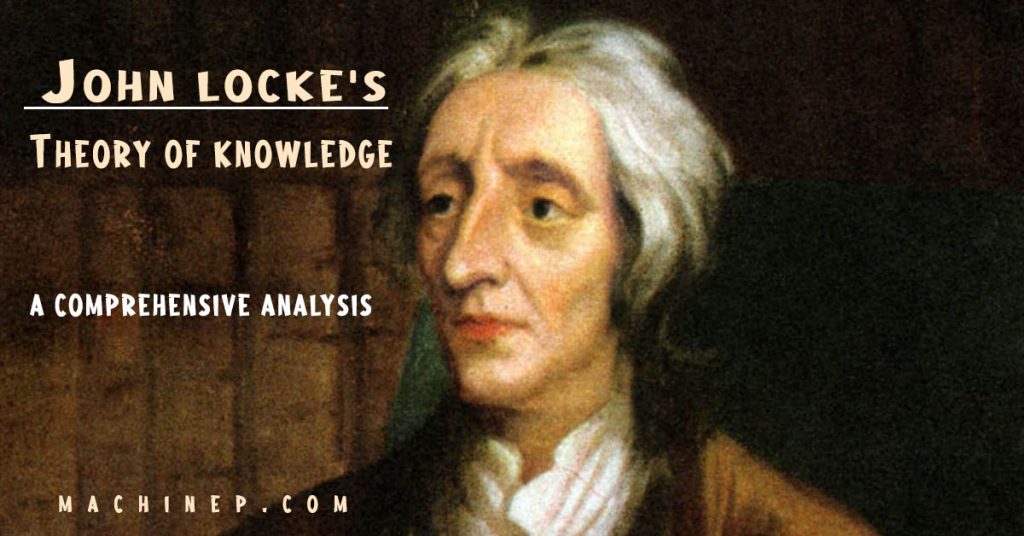John Locke (1532 -1704), a British philosopher and the father of Liberalism, believes that all ideas originated from our sensation and reflection. This simply means that “we can think about things only ‘after we have experienced them.” This is an empiristic position against rationalism. For Locke, the mind is a blank slate at birth, and every experience man has is gotten through his encounter with empirical things.
In light of Locke’s theory of knowledge, he was moved by a deep desire to start human thought, not on rationalistic ideas, which he saw, could be destructive, but on facts that stood in favour of human operations. If he could cause people to see the truth as arising from something objective ‘out there’, then he would easily contribute and discuss the reality of man, the world, and God.
Although, Locke depended more on psychological analysis than metaphysical constructions, the impact of his reflection on knowledge was felt not merely in the circle of technical philosophy, but also in epistemology, ethics, politics, education, and religion.
Locke practically avoided any cause of dogmatization and was not a blind follower to any cause. Moderation was a keynote to his character and his intellectual interests. He insisted that knowledge should aim at practical training in order for man to fit in society. he always considered education as a continuous process right from an early age to maturity.
Be it in philosophy or in any field, some part of Locke’s message has always been, “Don’t blindly follow convention or authority. Look at the facts and think for yourself.” He affirmed that human intelligence is oriented towards truth. In this case, Locke’s theory of knowledge demands a high appreciation. He suggests for man to think and make an experience of himself from whatever he comes into contact with.
Furthermore, in referring to the empiricism of Locke, keep in mind the possibility of certain errors that do not conform to reality. The effectiveness of empirical knowledge is thus under question. Sensation leads us to error when it presents a thing to man’s mind in a way different from what it is in reality. One realizes that the problem here, is not the failure of perception, but the unstable mind that receives the perception.
However, modern psychologists counteract the empirical claim of innatism, in reference to empirical knowledge. They affirm that the embryo starts its formulation in the mother’s womb right after the moment of conception. Throughout the time that the child spends in the womb, the external or internal environment of the mother affects the child psychologically. Such an experience could be stored in the subconscious mind of the child. As a result, psychologists would not agree with Locke’s notion that the mind is void at childbirth. Locke should have instead consented that there are already some ideas at childbirth – only that they are in the process of developing after more experience.
Locke’s system of knowledge lacks depth and speculative boldness. Imagine, intellectual knowledge seems to be reduced to sensible perceptions. An empiricist is said to be evaluated because he has nothing to do with the universal and necessary laws, which sensible data as such do not prove. But, shall we progress in knowledge with mere sensations? Besides, Locke seems to reduce nature to concrete facts, empirically exposed.
Concerning simple ideas of sensation, Locke errs because this is only a single sensation not a holistic view of reality. He blunders because complex ideas like the Socratic notions of truth, kindness, beauty, and causality, which are obtained by combined association, are achieved by abstraction. But Locke is against transcendental ideas. The question that is bound to arise about Locke’s theory is ‘if all we know are ideas and not the things in themselves, how can we know that there is a link between our ideas and reality? To prove such correspondence, we would need to step outside our perceptions to compare them with what causes them.
Locke’s critical fault in his account of our situation was to present a world we could only know through ideas and consisting of things held together by a mysterious unknowable substance. In doing so, not only had he left himself open to the inevitable questions as to how he could know what was unknowable but as to how he could know that such a thing, substance exists at all.
In conclusion, John Locke’s theory of knowledge was that of ideas. He proves them empirically and rejects innate ideas. Locke’s concern for man in understanding human knowledge is in line with our day-to-day understanding of knowledge, freedom, and responsibility. His human knowledge is thus of great worth. Empirical knowledge should be a stepping stone toward attaining rich discoveries from the vast unknown world. Sensation alone does not suffice.







I am often to blogging i genuinely appreciate your posts.
Its like you read my thoughts! You appear to understand so much about this, like you wrote the ebook in it or something. I think that you just could do with some to pressure the message house a little bit, however other than that, this is great blog. An excellent read. I’ll definitely be back.|
First off I want to say terrific blog! I had a quick question which I’d like to ask if you do not mind. I was interested to find out how you center yourself and clear your head prior to writing. I’ve had a difficult time clearing my mind in getting my thoughts out. I truly do enjoy writing however it just seems like the first 10 to 15 minutes tend to be lost just trying to figure out how to begin. Any suggestions or hints? Appreciate it!|
Spot on with this write-up.
I like what you guys are up too.
Yes! Finally I found something interesting about his philosophy.
thank you admin
Hurrah! In the end I got a weblog from where I be able to truly get helpful information concerning my study and knowledge.|
Thank you for teaching me
With thanks, Helpful stuff!
Lovely postings. Many thanks.
Marvelous
You’re on point
Think of writing more topics, I enjoy your writing skills
Thanks for this amazing writeup
Engaging writer
Classical… Thanks for the hit
This site always produces amazing writeups. Ilove it
Can you write a separate topic for me in Philosophy for my school project, please? How can I contact you?
Hi Lena, I’ll be glad to assist you on your philosophy project.. Just send a message to any of these contacts for further discussion. Many thanks
admin@machinep.com
machinep10@gmail.com
pereere@protonmain.com
Whatsapp – +234 810 564 2007
I’m thrilled with your detailed explanation.